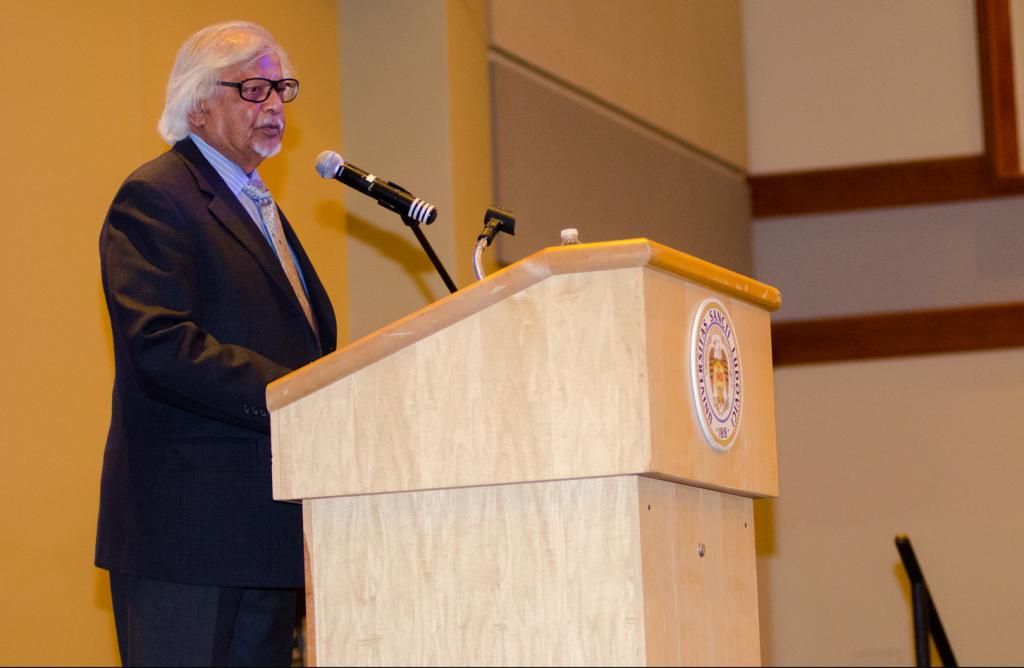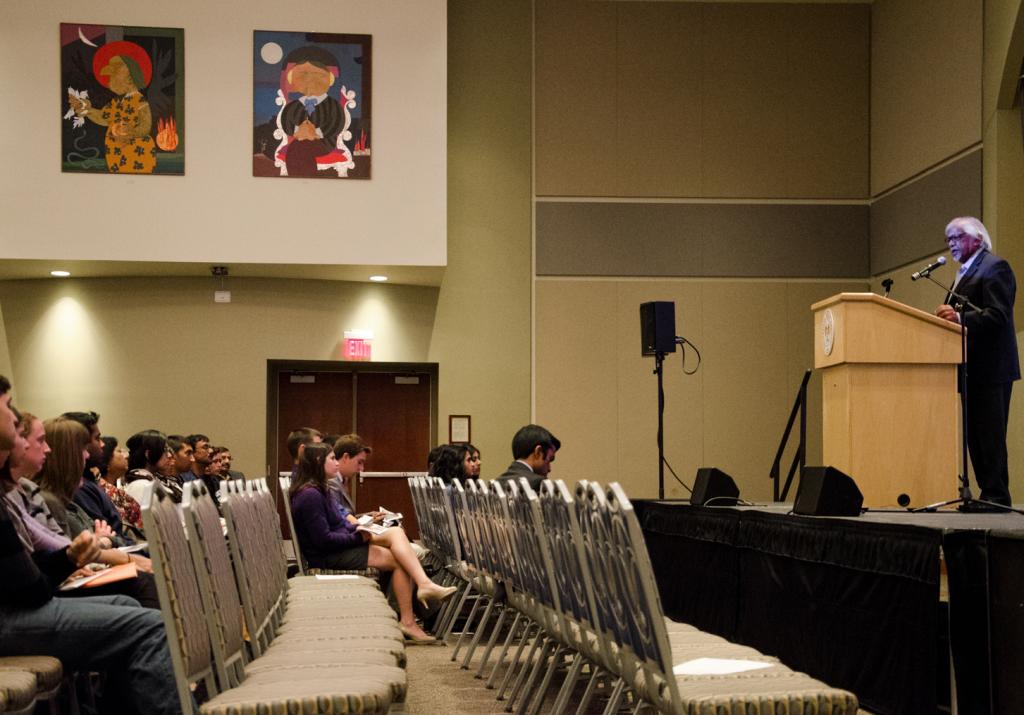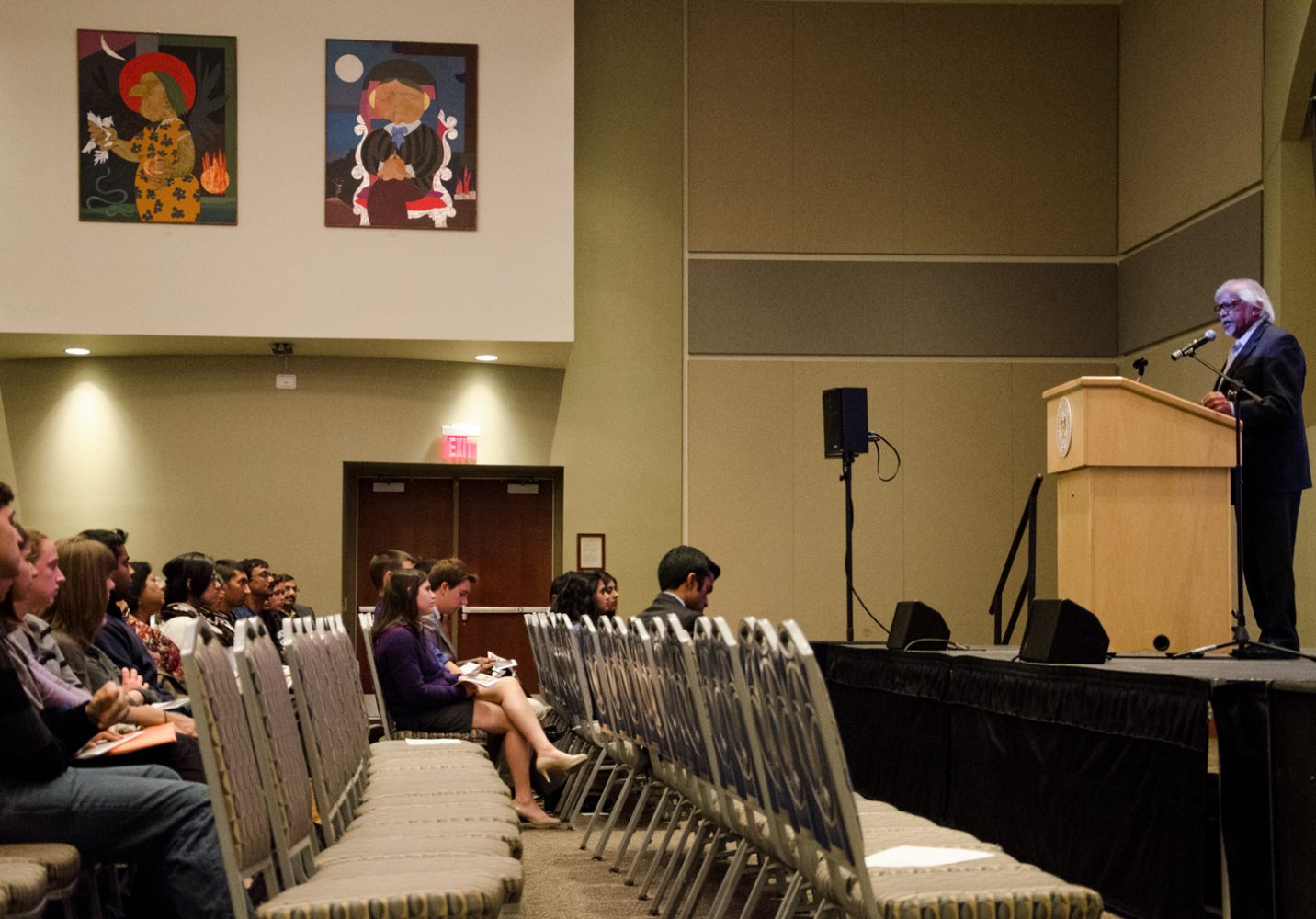
Ryan Quinn / Photo Editor
On Oct. 4, St. Louis University students listened to Arun Gandhi, grandson of Mahatma Gandhi, explain his views on the meaning and power of true non-violence. Hosted by the SLU Hindu Student Community and the Interfaith Alliance, Gandhi spoke of the lessons he learned during his time with his grandfather, and of their prevalence in today’s increasingly violent world.
Gandhi began by sharing that non-violence had not always been his personal philosophy. Raised in South Africa during the apartheid era, Gandhi was frequently subjected to physical violence due to his race. He adopted the “eye for an eye” view of justice and began physical training in order to be able to exact revenge on his opponents. It was then, he said, that his parents decided time spent living in India with his grandfather Mahatma would help him learn the true meaning of justice and non-violence.
Gandhi spoke of the lessons he learned during his time with his grandfather, the first of which involved the delicate relationship between non-violence and anger. Gandhi came to learn that revenge was not synonymous with justice, and that non-violence did not require the absence of anger. His grandfather taught him that anger should not be suppressed or denied in the search for non-violent conflict resolutions. Instead, anger demands a commitment to finding solutions to the problematic issues. Without anger, Gandhi explained, humans wouldn’t function; they would not be able to find solutions to problems and institute change. He emphasized the value of thinking critically about our anger, and using it constructively to solve problems.
“Anger is like electricity; just as useful and just as powerful, but only if we use it intelligently. It can be just as deadly and destructive if we abuse it. So, just as we channel electrical energy, and bring it into our lives, and use it for the good of humanity, we must learn to channel anger in the same way so that we can use that energy for the good of humanity, rather than cause death and destruction.”
Gandhi stressed, “The only way to understand non-violence is to understand the violence itself.” He explained that when people think of violence, they think only of physical violence. However, passive violence is equally important. Gandhi stated, “Passive violence … fuels the fire of physical violence.” He urged students to acknowledge the ways individuals can commit passive acts of violence in everyday life. Gandhi used the example of being wasteful with products that require natural resources; these acts commit violence against the earth. Overconsumption of these goods and products condemns others to poverty, thus committing violence against humanity. Gandhi challenged students to be aware of this violence, stating, “You can’t switch it on and off at will. You have to make it part of your life. If we don’t recognize the weaknesses in ourselves, we can never remedy them.”
Gandhi closed with an old story from his grandfather. In the story, an ancient king was presented with a single grain of wheat as the answer to his question, “What is the true meaning of peace?” He consulted a wise sage about the meaning of the wheat, and received this response:
“If you keep this grain locked up in a gold box it will eventually perish without providing nourishment or multiplying. However, if it is allowed to interact with the elements … it will flourish, multiply and soon you would have a whole field of wheat, which will nourish not only you, but so many others. This is the meaning of peace. It must nourish your soul and the souls of others. It must multiply by interacting with the elements.”
Gandhi offered this story as a way to urge SLU students to use their talents to spread peace. Keep peace locked away in your heart for selfish reasons, Gandhi said, and it dies with you- but when shared with others, the whole world benefits.

Ryan Quinn / Photo Editor






